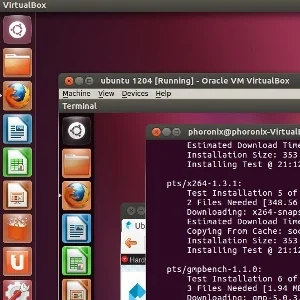Bareflank 2.1 Released As The Last Before A Major Rework To This Open-Source Hypervisor

Bareflank 3.0 has been in the works for more than one year and among the big ticket items are working to natively support Windows without relying on Cygwin, moving to the AUTOSAR C++14 coding standard, removing the need for dynamic memory where possible, new/improved documentation, and other new design approaches. In particular, with Bareflank 3.0 they intend to really ramp up their Windows efforts in seeing first-rate, native Windows support while Linux will continue to be fully supported.
The other big item being tackled for Bareflank 3.0 is AMD SVM virtualization. "AMD is killing it right now, and as such, we need to support it. 3.0 will add official support for AMD. Which versions of AMD CPUs we support is still being determined. You might be asking... what about ARM support? We have a working implementation of ARM internally, and if our move away from Exceptions and Libc++ really does make working ARM easier, ARM might also be added to 3.0."
More of the Bareflank 3.0 planning can be found via this GitHub ticket.
Bareflank 3.0 is under heavy development while this week Bareflank 2.1 was released as a final milestone before the new 3.0 design. Bareflank 2.1 has various fixes, new controls, and other mostly mundane changes.
3 Comments

